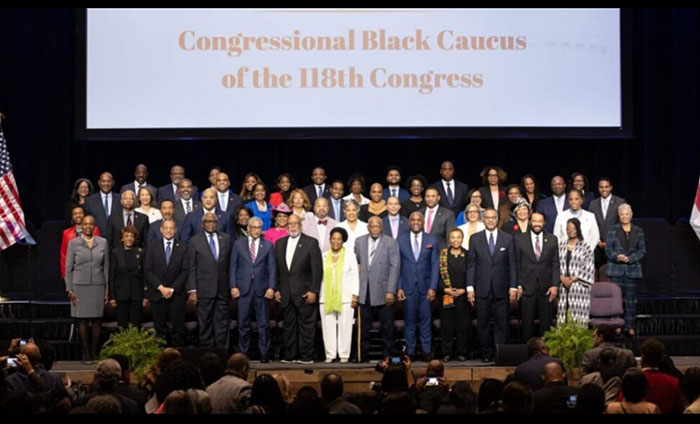By Stacy M. Brown
NNPA Newswire Senior National Correspondent
@StacyBrownMedia
The Congressional Black Caucus has lashed out at CNN for excluding Black-owned media from the presidential debate.
The network has come under fire for its oversight of Black-owned media, particularly with outlets like the Atlanta Voice and the Daily World located close to the site of the debate, and CNN having issued credentials to outlets around the world.
“This afternoon we learned that CNN has credentialed 800 members of the media for the first presidential debate of the election cycle. Not one represents a Black-owned media outlet,” Rep. Gregory Meeks, the chairman of the CBC Political Action Committee. Meeks called CNN’s exclusion of Black-owned media represents an egregious oversight and is totally unacceptable. He called on CNN to act immediately to credential a minimum of 10 Black-owned media outlets.
“Black-owned media provides a critical, trusted source of information to our communities and their role in our democracy must be respected and honored by CNN,” Meeks insisted. CNN’s rejection of Black media has ignited a firestorm of criticism, highlighting the broader issue of racial inequity in media representation. Atlanta, a city with a rich history of Black culture and leadership, finds its Black-owned media sidelined at a critical political event.
The National Newspaper Publishers Association (NNPA), a leading voice for Black-owned media, revealed that it too had received an email from CNN rejecting their request for credentials.
The NNPA represents the 197-year-old Black Press of America, which counts among its more than 230 newspapers and media companies, The Atlanta Voice, Atlanta Daily World, and the Atlanta Inquirer. The popular Rolling Out magazine also counts among the Black Press’ members frozen out by CNN.
“It was disrespectful. I thought it was very tacky not to invite the Black newspaper. I thought that was just cheap and typical of CNN,” Atlanta Voice editor-in-chief Donnel Suggs told the Atlanta Black Star outlet. Suggs and members of the NNPA noted that CNN never reached out with credentialing information long before June 7, a date the network claimed was the deadline to apply for credentials.
“(CNN) never reached out to me and said, ‘Hey, June 7, you guys better have this thing in.’ Had they told me that, we would have done that, right? So, right, that’s messed up,” Suggs said.
Journalists at Atlanta Black Star said a scan of email inboxes showed zero emails from CNN or a representative regarding the debate. A follow-up email to Dylan Geerlings of CNN seeking clarification of the deadline and how Atlanta Black Star would be aware of it had been left unanswered.
Editors from EBONY told Atlanta Black Star they also sent a request but never received a response.
Representatives from Joe Biden’s campaign have also lobbied for Black publications to attend, given the impact of Black voters in the election and the barriers that Black publications face.
Black-owned media outlets struggle with significantly lower financial resources than mainstream media, leading to staffing and other disparities and constraining those platforms’ growth and visibility.
CNN has now offered to add Atlanta Black Star, Atlanta Voice, and NNPA to its distribution list for transcripts and photos from the debate. The Biden campaign will host a press briefing for Black publications ahead of the debate on Thursday.
Media personality and Black Star Network owner Roland Martin tweeted that his phone had been “buzzing from Black-owned media outlets in Atlanta who say they are being denied media credentials to the debate.”
The prolific news leader, further noted, “They don’t care about us. This is despicable. The treatment of Black-owned media is pathetic.”
Added NNPA President and CEO Dr. Benjamin F. Chavis Jr., “CNN’s decision is an affront to the very essence of press freedom and diversity. In a city where Black voices and perspectives are essential, this exclusion is both a slap in the face and a stark reminder of the ongoing struggles for equitable media representation. Our exclusion from this pivotal event is not just an insult to our organizations but to our readers and viewers who rely on us for their news,” Chavis argued.

